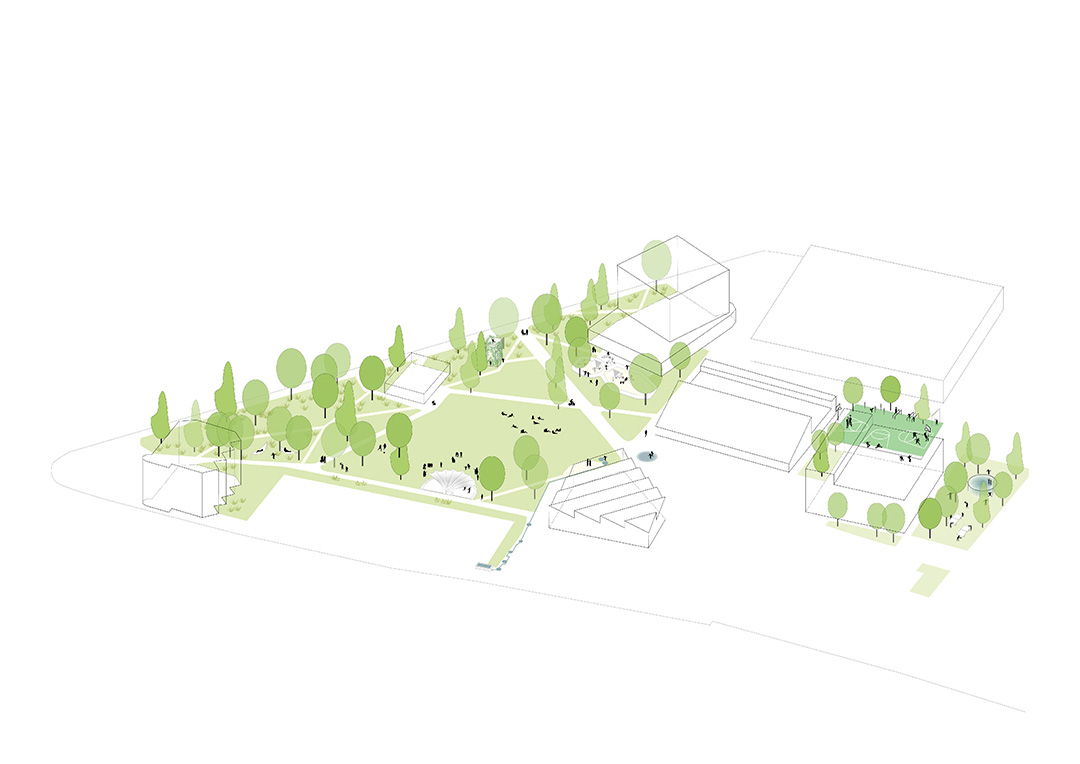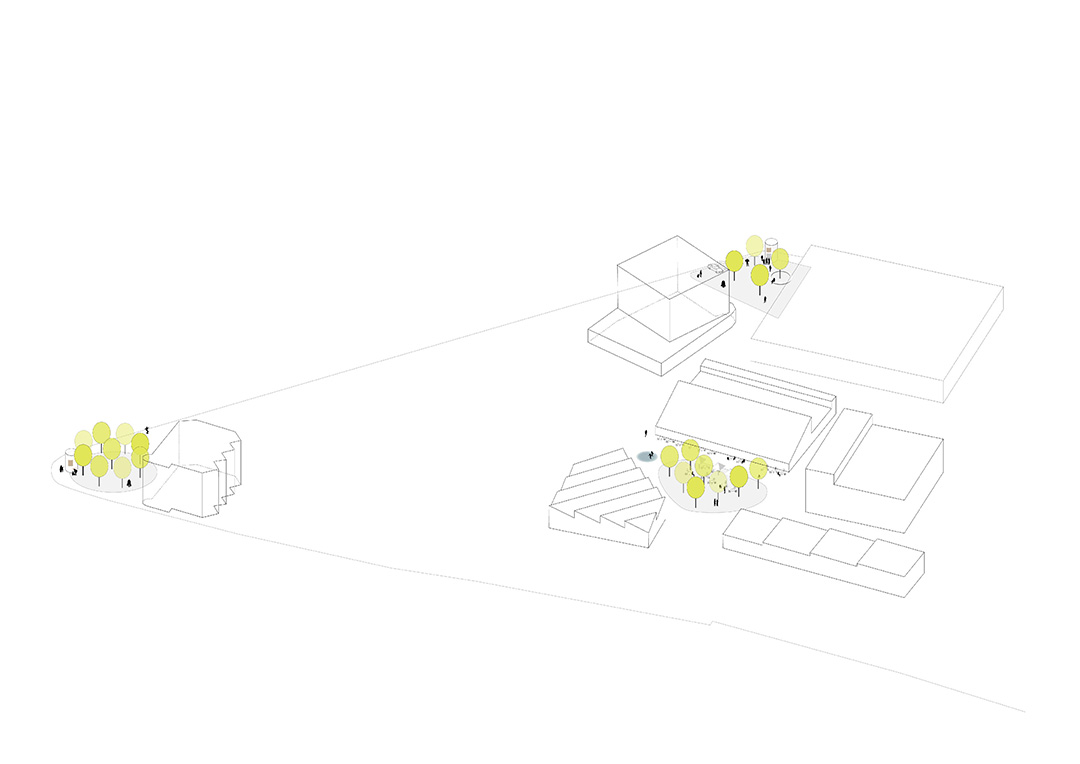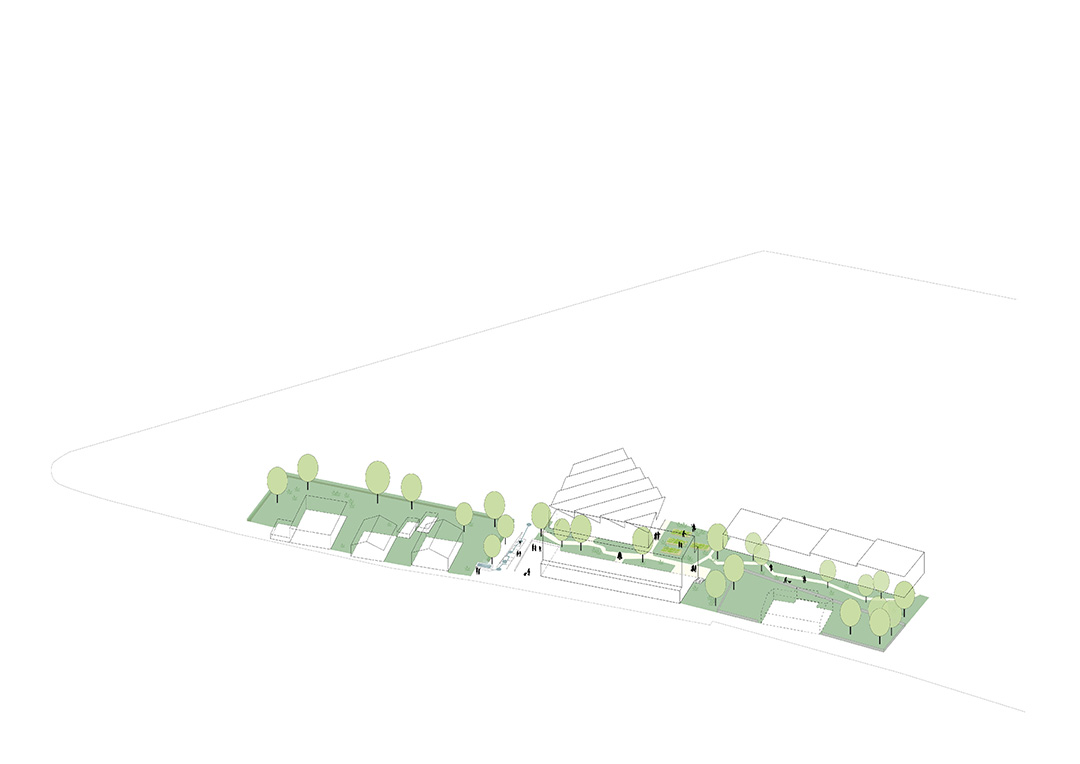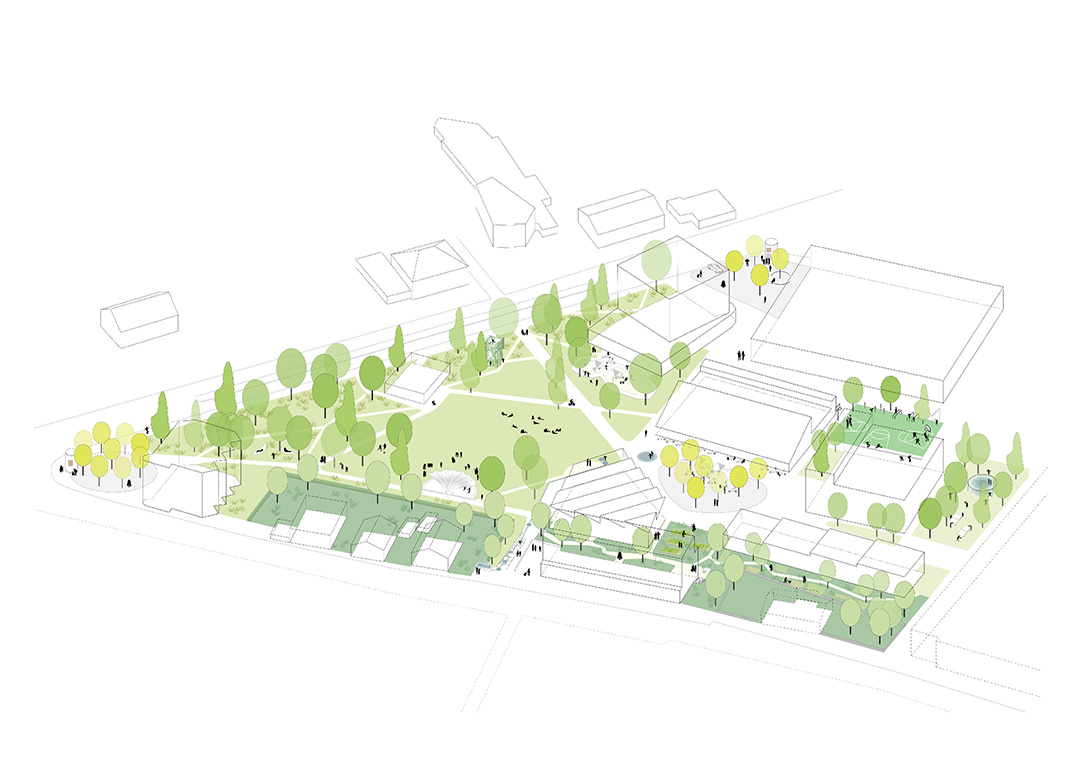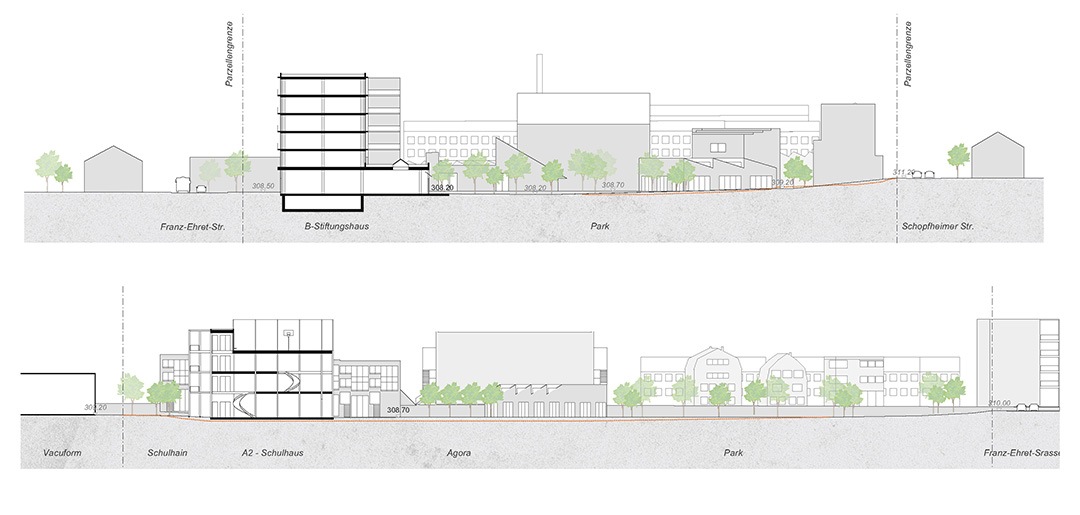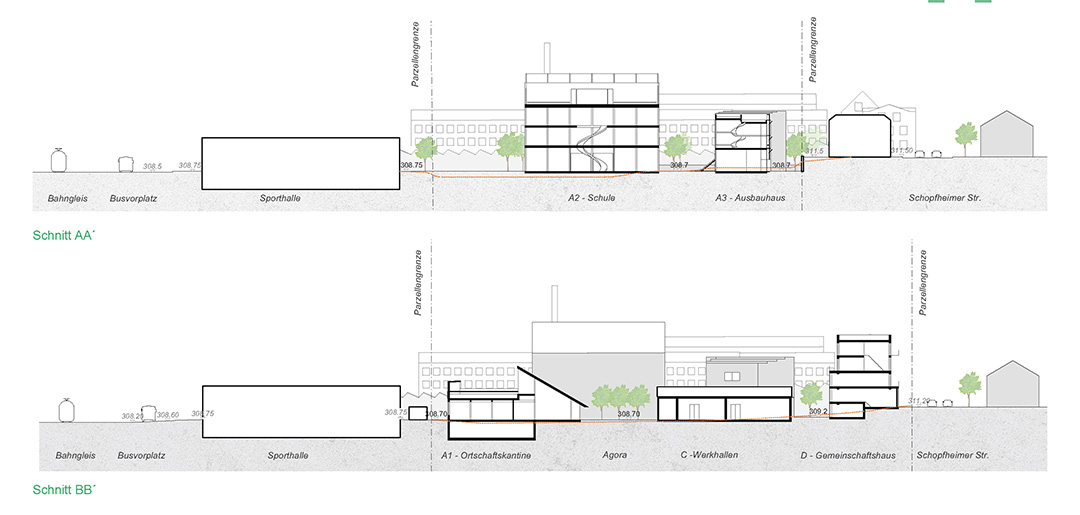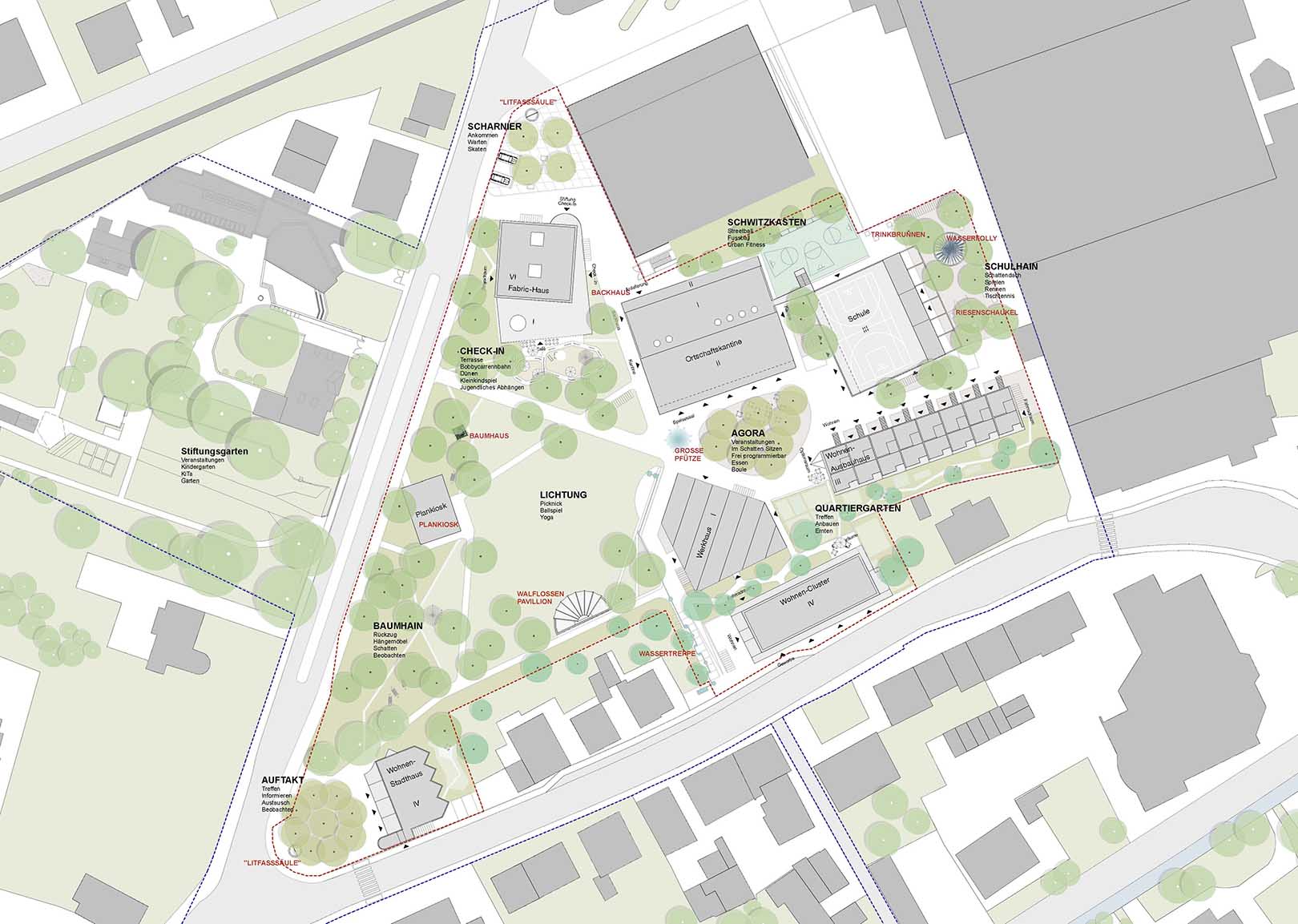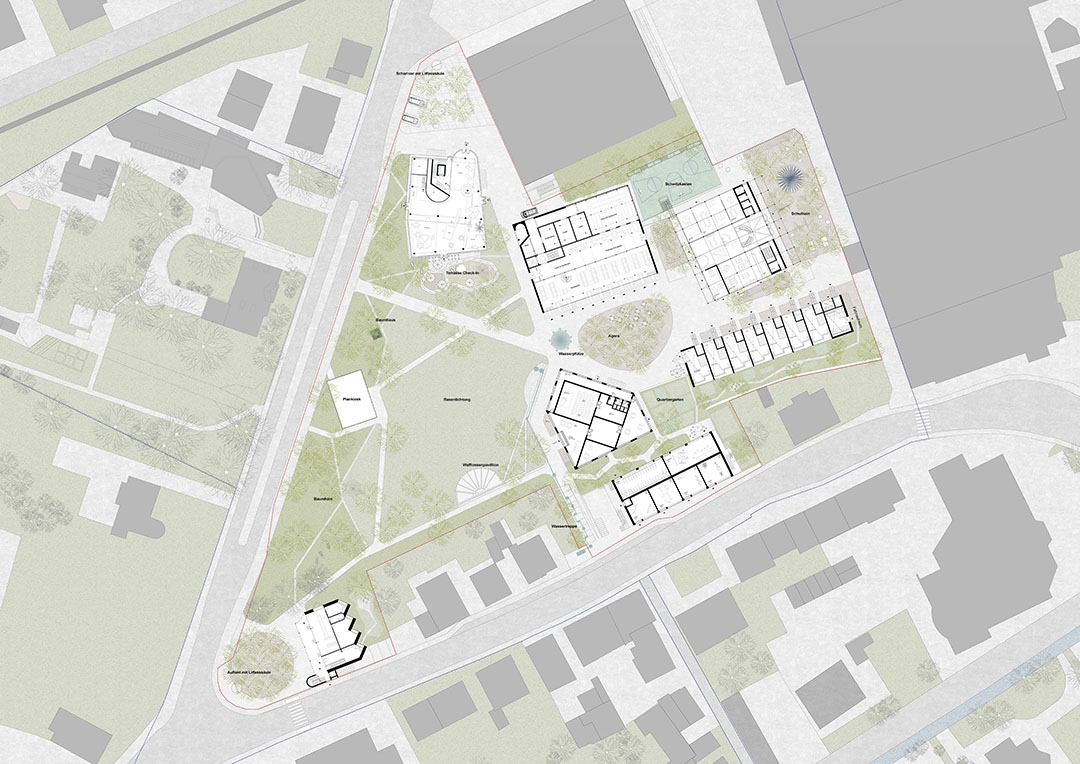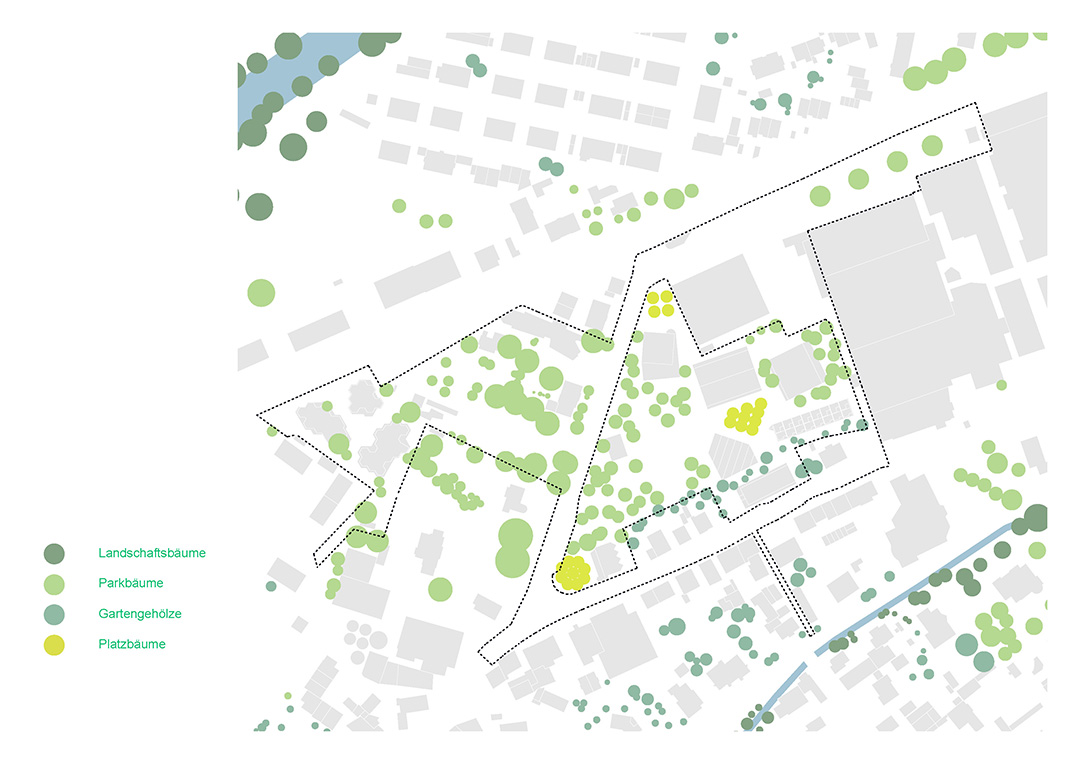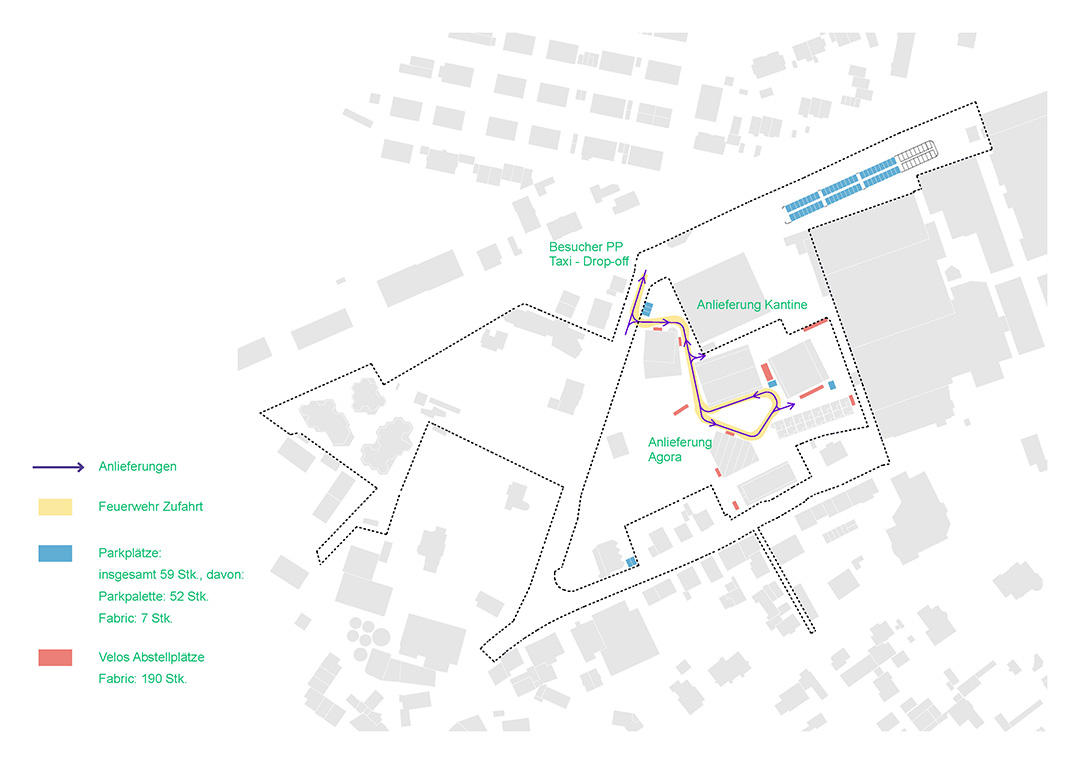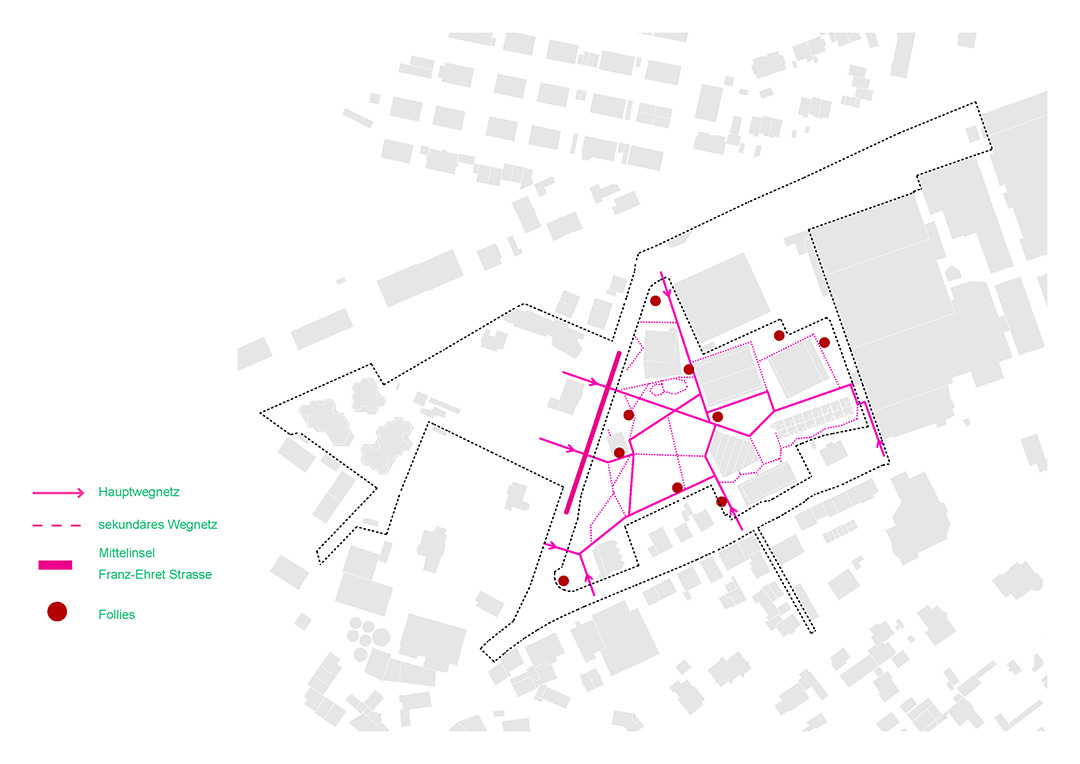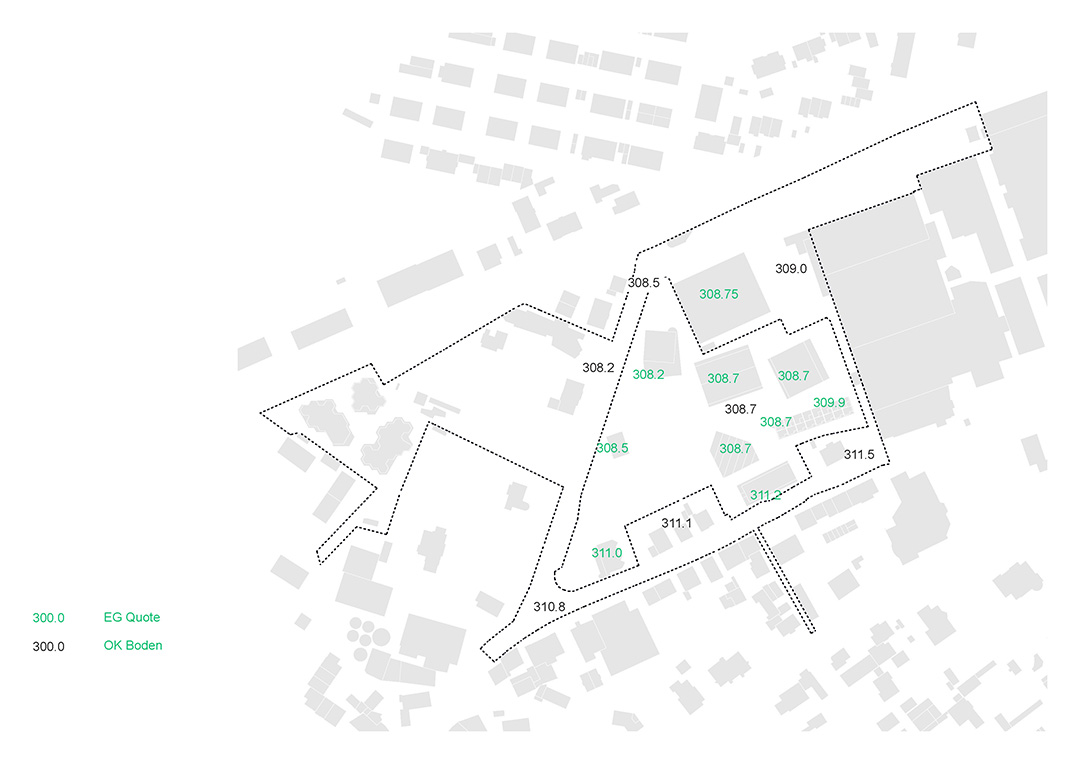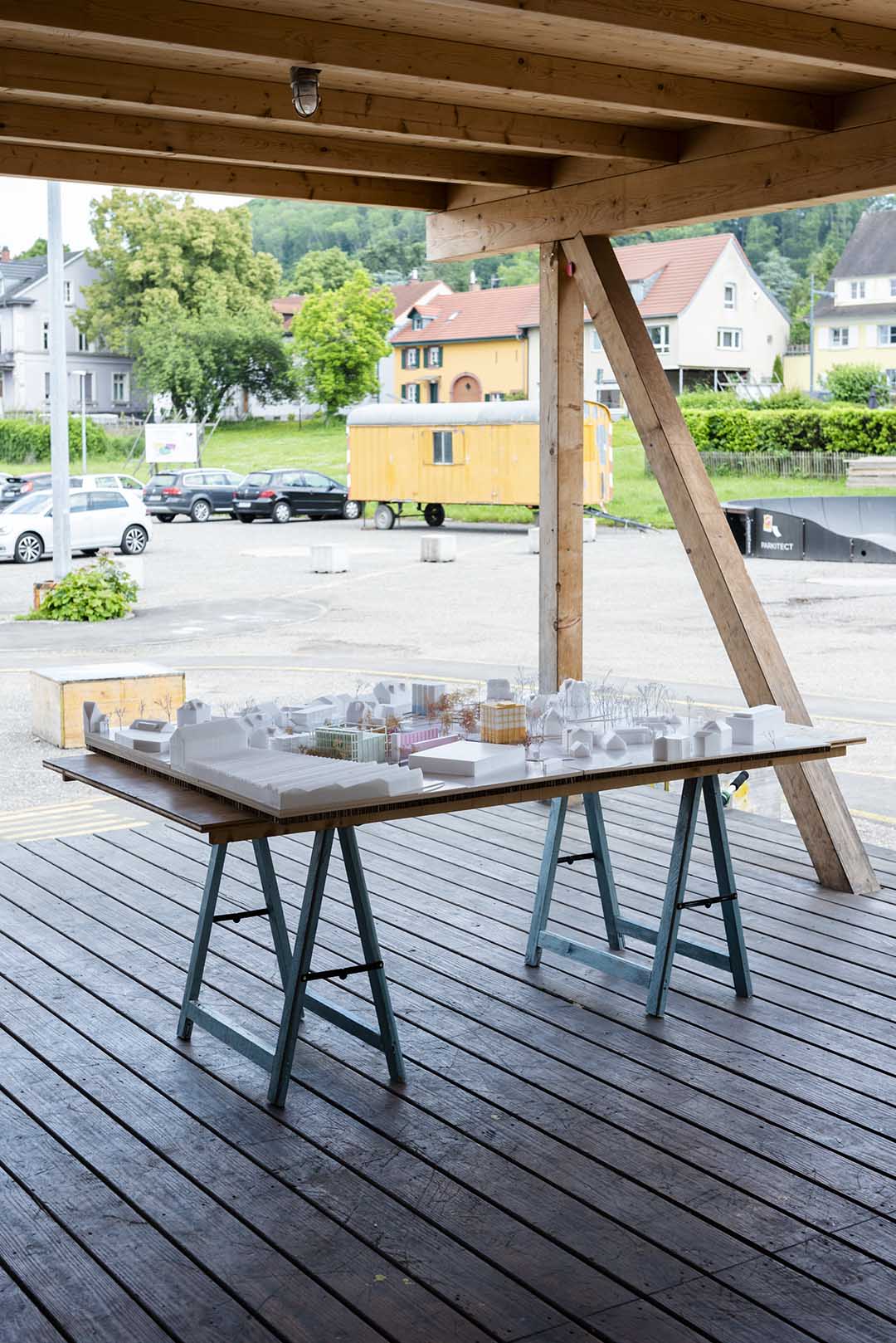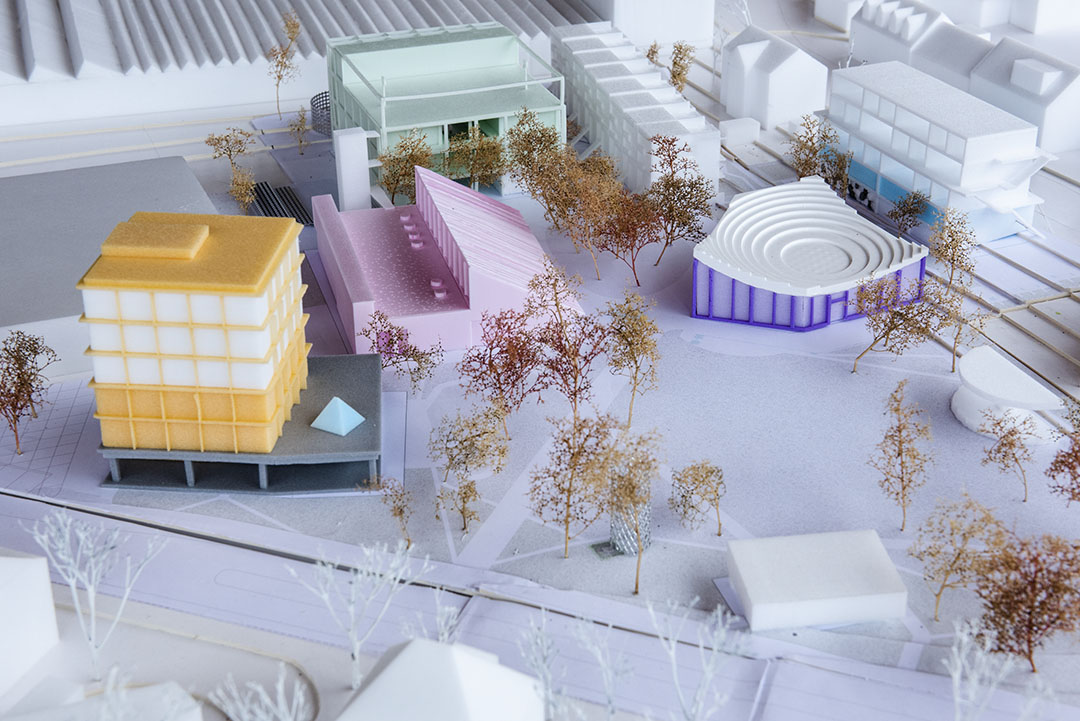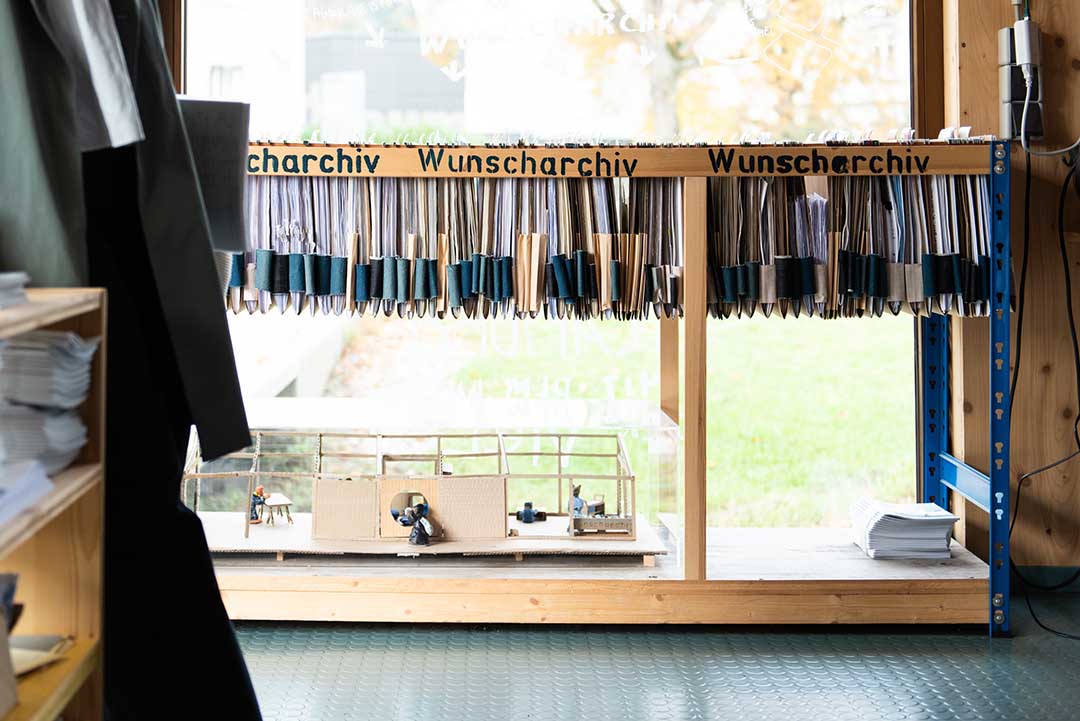Fabric
Based on a thorough participative work with the community and collaborative workshops, this urban study seeks the emergence of an emancipated kind of urbanity.
| Location | Lörrach, Baden-Württemberg, Germany |
| Size | 1.5 ha |
| Time Frame | 2020-2021 |
| Client | Schöpflin Stiftung |
| Commission Type | Urban study |
| Landscape Architecture | Studio Céline Baumann with META Landschaftsarchitektur |
| Architecture | BeL Sozietät für Architektur, Clauss Merz, ifau, NL Architects |
| Artistic Direction | Christoph Schäfer and Margrit Czenki, Park Fiktion |
| Project Coordination | Denkstatt sàrl |
ENG The urban study is the result of a planning process organized around collaborative workshops by the Schöpflin Foundation in Lörrach, Germany. Four architecture offices and two landscape studios joined forces with traffic and sustainability experts to unfold the potential for the old Fabric site to become a community hub. The planning process was preceded by a participative initial phase where a “Wunschproduktion” (production of wishes) had been elaborated by Hamburg-based artists Christoph Schäfer and Margrit Czenki. Their careful fieldwork of two long years gathered more than 1,600 wishes from inhabitants and users of the neighbourhood and was put forth as one of the starting points of the project. The proposals of the “Wunschproduktion” are translated into open spaces of differentiated qualities, clustered around the typologies of an agora, a park and gardens. The agora is the core of this new district: it is a meeting point, hosts birthday parties and weddings, and can occasionally be turned into a dancefloor. The park frames the site and creates a transition with the nearby built environment. A densely planted edge offers both shade and protects emerging biotopes, while a central clearing is especially suited for playing and exercising. A garden belt connects to the single-family houses on the area’s southern edge. Follies dispersed around the site include a pavilion for the city orchestra, a living treehouse and a ring-structure sprinkling mist during hot days. The delivered urban study is currently (as of 2021) being reviewed in coordination with the city of Lörrach to produce a legal urban document that will permit implementation in the coming years.
DE Grundlage für das städtebauliche Verfahren war ein intensives Beteiligungsverfahren, das der Hamburger Konzeptkünstler Christoph Schäfer gemeinsam mit Margrit Czenki entwickelt hat. Spätestens mit der «Wunschproduktion» und den über 1.600 gesammelten Wünschen der Lörracher*innen ist deutlich geworden, um was für ein zentrales Gelände es sich für die Anwohner*innen handelt. Statt eines klassischen Wettbewerbs hat sich die Schöpflin Stiftung für ein kollaboratives Planungsverfahren entschieden, um im Dialog mit den Expert*innen eine städtebauliche Lösung für die komplexe Aufgabenstellung zu erarbeiten. Herzstück des neuen Quartiers an der Franz-Ehret-Straße werden Freiflächen mit unterschiedlichen Qualitäten, in denen sich die durchgeführte »Wunschproduktion« in vielfältiger Weise widerspiegelt. Um den zentralen Platz, die Agora, ordnen sich verschiedene Nutzungen an: Die Ortschaftskantine und das Werkhaus mit öffentlichen Workshop- und Werkstatträumen. An der Agora sieht die Planung ein Baufeld vor, in dem die Schöpflin Stiftung eine Weiterführung der Schöpflin Schule umsetzen möchte. Mit der Ortschaftskantine und einem Café wird auch dem Wunsch nach einem niedrigschwelligen gastronomischen Angebot Rechnung getragen, in dem nicht der Konsumzwang, sondern die Begegnung im Fokus steht. Den umgebenden Freiflächen kommt eine besondere Bedeutung zu: Sie verknüpfen das Gelände, die Häuser und die Nutzungen miteinander und bieten vielfältige Möglichkeiten für das Gemeinschaftliche. Alle Gebäude stehen somit im Park, was u. a. ein zentraler Wunsch der Nachbar*innen war. Mit den Ergebnissen des städtebaulichen Verfahrens wird jetzt (2021) der bestehende Bebauungsplan in Abstimmung mit der Stadt Lörrach und den städtischen Gremien überarbeitet.
Photography model: Alena Halmes
Team SCB: Céline Baumann, Teresa Pontini
